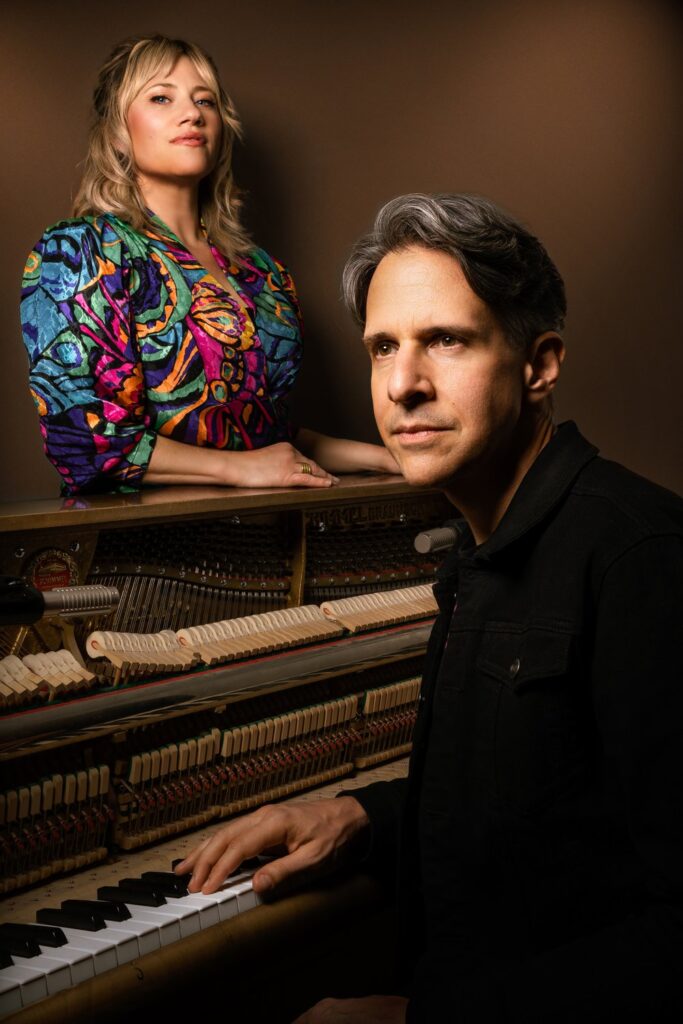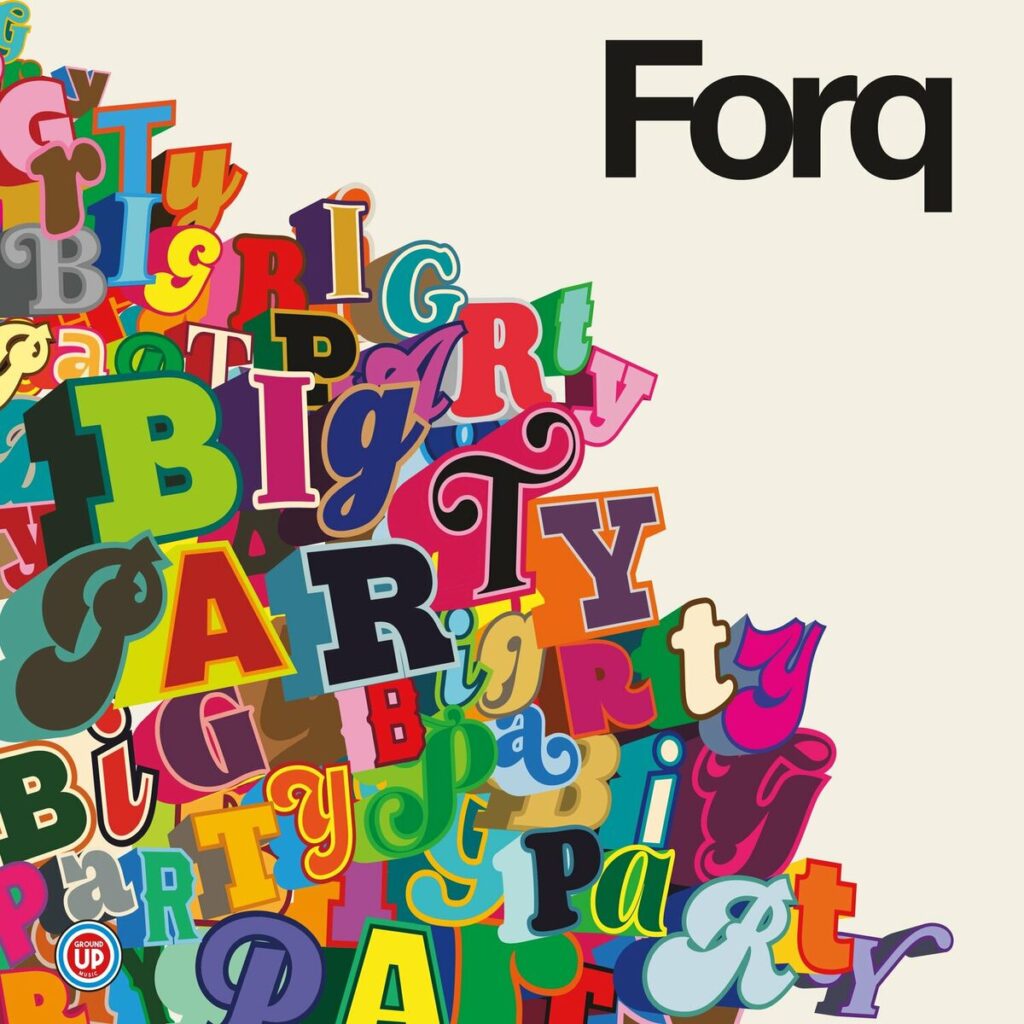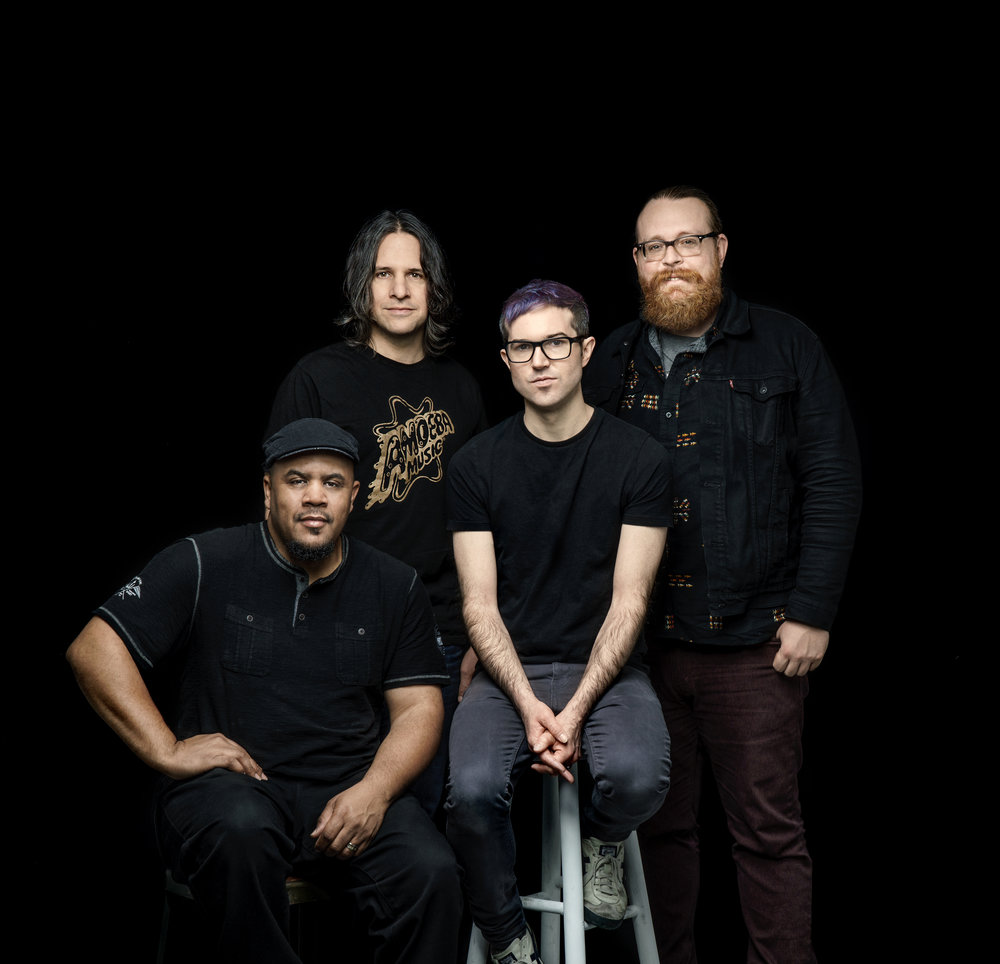Forq | Interview | “We are at our best when we can express our humanity”
Forq is a dynamic jazz fusion ensemble known for its groove-centric, improvisational approach, blending intricate melodies with driving rhythms.
Formed by keyboardist Henry Hey and Snarky Puppy’s Michael League, Forq brings together some of the most versatile musicians in the contemporary jazz scene. The band’s latest album, ‘Big Party,’ showcases a seamless balance between technical sophistication and accessible, danceable grooves. With a rich lineage in jazz and fusion, Forq’s music explores complex arrangements while maintaining a strong melodic core. Their live performances are a cornerstone of their identity. Despite changes in lineup, Forq remains committed to its original vision of creating music that celebrates both structure and freedom.
“I think that Forq has always been about melodic, groove-based improvisational music with interesting harmony”
Forq has seen several lineup changes over the years. How has the addition of new members influenced the band’s sound and creative direction?
Henry Hey: As has been the case with many touring/recording bands, lineup changes are often inevitable—especially in today’s ever-changing music world. Perhaps the biggest (and most positive) creative shift since the inception of the band was the inclusion of Chris McQueen, starting on the second recording. Chris and I became collaborative brothers, I guess you could say. We have a very similar sensibility about composition, sound, and humor in music. Hopefully, those things are evident in our recordings. With Big Party, the latest recording, there are many additions to the lineup. These additions are partly for the purpose of expanding the musical flavors and partly because it makes sense to “deepen the bench” (a tip of the hat to pro sports) with great players available in various positions. Even with this greater variety of players, we feel that Forq has established a somewhat specific sonic and compositional stamp at this point. This new album is, I believe, a further progression in this sound, while including these amazing musicians who have come aboard. I endeavored to compose with the specific musicians in mind—they are all so unique—but hopefully, we maintained an energy and compositional complexity that fits Forq.
Given the diverse backgrounds of your members, including collaborations with artists like David Bowie, Lauryn Hill, and Jon Batiste, how do you blend these varied influences into a cohesive Forq sound?
I’m a believer that diverse backgrounds make for “interesting bedfellows.” Why not have a band that has interests as far and wide as possible? Bowie himself was someone who had interests as diverse as possible. I’m very thankful that the collection of musicians who have come to participate with Forq have so much musical and emotional experience to bring to the recording and performance of this music. We are at our best when we can express our humanity.
Would love it if you could speak about the very early days and how everything came together? Do you feel that you’re still driven by the same concept when it comes to music-making?
Henry Hey: Michael League and I had become friends through his leadership of Snarky Puppy and my (if not leadership) custodianship of Rudder (with Chris Cheek, Tim Lefebvre, and Keith Carlock). Both Snarky Puppy and Rudder were challenging projects for us individually, and Mike and I were not only looking for an opportunity to play together but also to have a project that felt streamlined and (for lack of a better word) “easy.” It’s important to bear in mind that these were the days before Snarky Puppy had any Grammy awards, and Mike was bearing a lot of the finance and stress on his own back. This is no small feat.
Mike and I wanted to form a fleet groove-based quartet to play the music and vibes that we had in mind. I suggested my friend and long-time touring/recording mate, Adam Rogers, and Mike suggested the supremely grooving Jason “JT” Thomas. And so, the band was born. I guess the evidence of that band is shown in our first record.
It eventually—and somewhat quickly—became clear to Adam Rogers that he couldn’t commit to much touring with us, so Mike and I made a quick pivot, and he brought in guitarist Chris McQueen, whom I had worked with on vocalist Lucy Woodward’s record. Chris was a perfect fit, and we were off to the races.

What did the early days feel like?
We were finding our way, as any band does. We had the luxury of the laboratory of the iconic 55 Bar in NYC (RIP—NY will NEVER be the same). We would write loose structures and try them out at the 55 Bar. Things accelerated quickly.
Is Forq still driven by the same concept?
I think that Forq has always been about melodic, groove-based improvisational music with interesting harmony. In that sense, the band is very much the same as it was at its inception. And it’s worth noting that we still perform several selections from the first album—and the earliest days—and that they fit seamlessly (or so it appears to us) within our newest compositions.
Forq’s music often features complex arrangements and rhythms. How do you approach the process of composing and arranging your pieces to ensure they balance technical sophistication with accessibility?
Melody and voice leading remain some of the most important parts in the Forq compositions. Those elements tie everything together. If you listen to the most involved Wayne Shorter compositions, you can hear that he uses a simple melody to connect quite a few seemingly unrelated harmonies. (I’m not saying that we are at all on the level of Wayne Shorter—this is just an observation.)
Live performances are a significant part of Forq’s identity. Can you describe a memorable live performance experience and how the energy of the audience or the venue impacted your performance and interaction as a band?
We’ve been very lucky to perform at a number of notable venues around the world. Certainly, our performance at Ronnie Scott’s was a standout for us. Other memorable performances include Montreux Jazz Fest, North Sea Jazz Fest, multiple times at the GroundUp Festival, and more. Anytime we can truly connect with the audience is a special event for us—regardless of the prestige of the venue. We had an incredible time playing at a very small venue in western Germany called the Red Horn District. The audience was genuine, energized, and full of love. We felt an emotional communion. This is everything for us.
You will be playing at the legendary Ronnie Scott’s in London. Are you excited about it? What does this club represent to you? [Interview conducted in August, 2024]
I have such special memories of playing at Ronnie Scott’s. I vividly recall playing there with vibraphonist Joe Locke, including Jeff “Tain” Watts. Those were very special times. It’s always been a destination venue for me. I’m happy to have had the honor to perform there with a number of bands over the years. Times change, but perhaps Ronnie Scott’s remains a beautiful constant—a music-centric venue with a beautiful live experience.
With members of Forq involved in various side projects and collaborations, how do you manage to keep the band’s focus and creativity intact?
I’m lucky to find musicians who are deeply committed to the music and the communion of the musical experience. I think “communion” is a fitting word here. Musicians who are artists need to make a living (of course), but mostly, they do it for the soul-saturating fulfillment that is the live art experience. I’ve tried hard to seek out musicians who thrive on this experience—as I do. I love these people playing with me and can’t wait to share the stage with them again.
Would you mind taking some time to discuss the latest album?
The latest album, ‘Big Party,’ is both something that our audience will expect and somewhat of a surprise. Certainly, they will see the familiar faces of Chris McQueen, Jason “JT” Thomas, and Kevin Scott, but with the addition of so many other incredible players, it might be a bit of a surprise. This is a growing family, and all of that family was, at one time or another, in the studio together at my home. We got together and found space to make grooves and sounds, and it all felt very organic. These recordings happened over several dates—from August 2023 through April 2024, and there is a bonus track that was recorded in August 2024 (not included in the full release of Big Party). I flew to Spain and spent some time mixing with the incredible engineer Nic Hard. Nic is the sort of creative mind that feels like the fifth band member. I have a long history of working with Nic, and we speak very much the same language. This album then went on to Dave McNair—arguably one of the best mastering engineers in the world, with a pedigree to back up that assertion. On top of being a top-shelf pro, Dave is also a true music lover. He eats and breathes music all the time. It’s so satisfying to hand him your work, knowing that it will be in the best of hands. I’ve found an incredible visual partnership in designer Dave Croy. Dave is someone I met through Chris Cheek, and he worked on the Rudder album Matorning. For those who are Rudder fans, it was Dave who created the melting boombox that was on the cover and various t-shirts. He also created the GENIUS Forq logo with letters interlocked with vinyl grooves. He’s a true visionary. He can listen to music and then create an image that nearly perfectly pairs with the music—WITH ZERO prompting. I am so very lucky.

Looking ahead, what are some future goals or projects for Forq?
We hope to pick up where we left off before Covid and continue to record and perform. Our hope is that this band can remain a living and breathing live project. We are energized and excited for what’s to come!
Klemen Breznikar
Forq Official Website / Facebook / Instagram / Twitter / Bandcamp / YouTube
Snarky Puppy’s Michael League | New Studio Album With Bokanté | Interview
Snarky Puppy | Interview | Members Bill Laurance and Michael League Releases ‘Where you Wish you Were’




